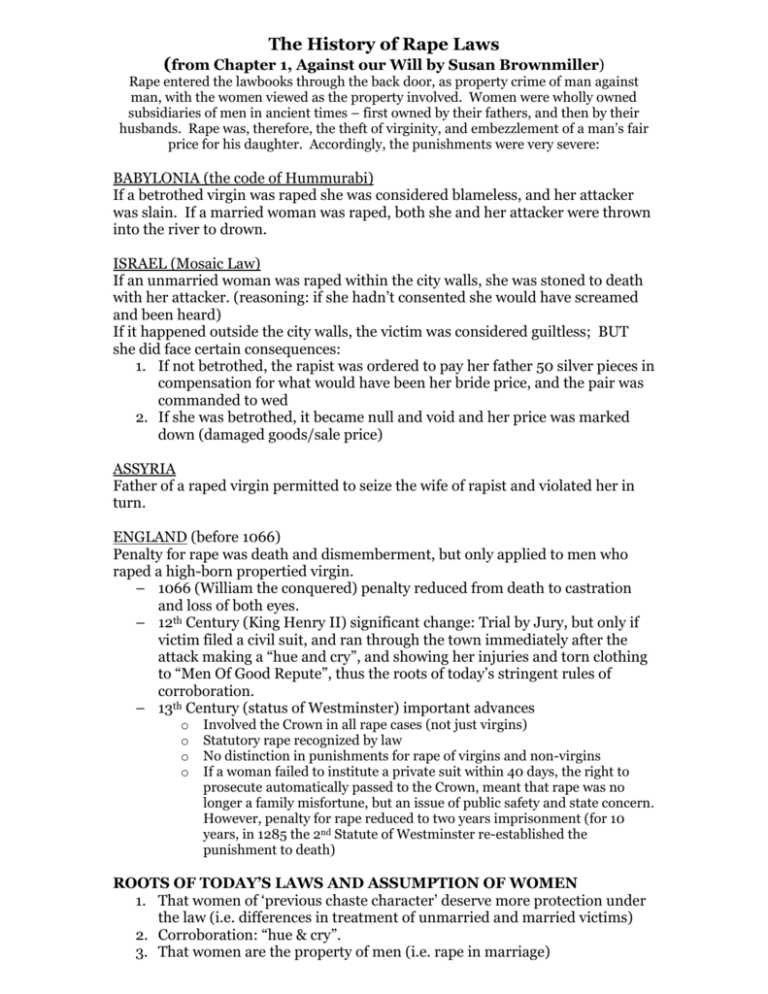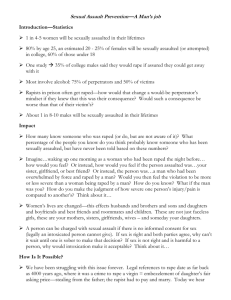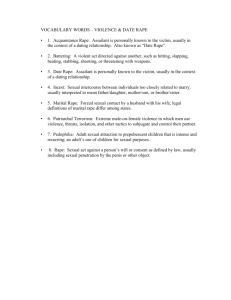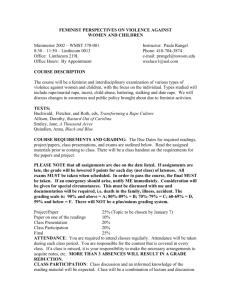The History of Rape Laws
advertisement

The History of Rape Laws (from Chapter 1, Against our Will by Susan Brownmiller) Rape entered the lawbooks through the back door, as property crime of man against man, with the women viewed as the property involved. Women were wholly owned subsidiaries of men in ancient times – first owned by their fathers, and then by their husbands. Rape was, therefore, the theft of virginity, and embezzlement of a man’s fair price for his daughter. Accordingly, the punishments were very severe: BABYLONIA (the code of Hummurabi) If a betrothed virgin was raped she was considered blameless, and her attacker was slain. If a married woman was raped, both she and her attacker were thrown into the river to drown. ISRAEL (Mosaic Law) If an unmarried woman was raped within the city walls, she was stoned to death with her attacker. (reasoning: if she hadn’t consented she would have screamed and been heard) If it happened outside the city walls, the victim was considered guiltless; BUT she did face certain consequences: 1. If not betrothed, the rapist was ordered to pay her father 50 silver pieces in compensation for what would have been her bride price, and the pair was commanded to wed 2. If she was betrothed, it became null and void and her price was marked down (damaged goods/sale price) ASSYRIA Father of a raped virgin permitted to seize the wife of rapist and violated her in turn. ENGLAND (before 1066) Penalty for rape was death and dismemberment, but only applied to men who raped a high-born propertied virgin. – 1066 (William the conquered) penalty reduced from death to castration and loss of both eyes. – 12th Century (King Henry II) significant change: Trial by Jury, but only if victim filed a civil suit, and ran through the town immediately after the attack making a “hue and cry”, and showing her injuries and torn clothing to “Men Of Good Repute”, thus the roots of today’s stringent rules of corroboration. – 13th Century (status of Westminster) important advances o o o o Involved the Crown in all rape cases (not just virgins) Statutory rape recognized by law No distinction in punishments for rape of virgins and non-virgins If a woman failed to institute a private suit within 40 days, the right to prosecute automatically passed to the Crown, meant that rape was no longer a family misfortune, but an issue of public safety and state concern. However, penalty for rape reduced to two years imprisonment (for 10 years, in 1285 the 2nd Statute of Westminster re-established the punishment to death) ROOTS OF TODAY’S LAWS AND ASSUMPTION OF WOMEN 1. That women of ‘previous chaste character’ deserve more protection under the law (i.e. differences in treatment of unmarried and married victims) 2. Corroboration: “hue & cry”. 3. That women are the property of men (i.e. rape in marriage)











